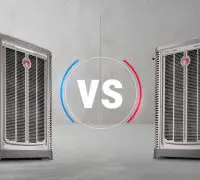INFORM’s new report investigates the role that the 179,000 waste collection, waste transfer, and recycling vehicles on US roads play in generating vehicle emissions that threaten public health in cities coast to coast.
Garbage Trucks in the US
The refuse business serves a critical function in American society, collecting garbage from over 75 million homes, 7 million businesses, and 100,000 government enterprises. Public concerns regarding waste normally focus on its growing quantities or on the dangers posed by landfills to the environment. However, one element of the waste management industry that often goes unnoticed, yet has significant impacts on health and the environment in cities coast to coast, is the vast garbage truck fleet that processes this country’s garbage.
INFORM found that 179,000 waste collection, waste transfer, and recycling vehicles are on US roads today — 91% of them diesel-fueled and most of them old. While these vehicles perform a vital public service, their emissions contain large quantities of gases, fine particulates, and more than three dozen toxic contaminants. In addition, diesel garbage trucks generate noise levels that can be high enough to cause “serious hearing damage.” This air and noise pollution is delivered to virtually every street in America.
Diesel-powered garbage trucks pose significant threats to the environment, to the health of residents in the communities they serve, and to the workers who maintain and operate them. But there is good news.
In its investigation of garbage truck projects in the US, Japan, and the Netherlands, INFORM found that cleaner fuels and quieter garbage truck technologies have significant potential to revolutionize this vital fleet sector. The trucks of the future will be able to clean our streets while also helping to ensure clean and healthy air for the communities they serve. The most exciting news is that the future is now. Natural gas trucks, which are 90 percent cleaner and quieter, are commercially available. The challenge is to make the shift to this new generation of vehicles and fuels as rapidly as possible.
Beyond the immediate environmental, health, and quality of life benefits they provide, natural gas trucks also help reduce our dependence on foreign oil and move us toward the era of the hydrogen fuel cell — possibly the ultimate sustainable, pollution-free, and renewable fuel and power source.
GARBAGE TRUCK FACTS
|
Impacts of Garbage Trucks
Air quality. Over 133 million Americans live in areas that violate federal clean air standards. Vehicle emissions, including those from diesel-powered garbage trucks, are responsible for most of the pollution blanketing US cities.
Scientists have long known that air pollution can sicken or kill sensitive groups of people, including children and the elderly. According to a recent study published in the Journal of the American Medical Association, people living in the most heavily polluted areas have a 12% higher risk of dying of lung cancer than people in the least polluted areas. That risk increases to 50% for those who are repeatedly and regularly exposed to diesel exhaust, such as the workers who spend long days at the back of or inside garbage trucks. The California Air Resources Board (CARB) has identified 41 toxic constituents of diesel exhaust that pose an additional health threat. Air pollution is also responsible for a variety of other health problems, including aggravation of the symptoms of asthma, reduced lung function, and other respiratory problems.
Noise. Diesel garbage trucks are notoriously loud, generating noise that can cause serious hearing damage. Garbage truck operators, as well as those living along garbage truck routes, are affected by these dangerous noise levels.
Energy security. The garbage truck sector alone is responsible for consuming approximately 1 billion gallons of diesel fuel annually, representing nearly 3% of total diesel fuel consumed in the US. And it is the unstable Middle East that provides the US with 30% of its oil imports.
Natural Gas: A Cleaner, Domestically Produced Fuel
INFORM has found that natural gas, in both compressed and liquefied form, is the primary alternative fuel that, increasingly, is being used in garbage truck fleets. INFORM’s analysis of air pollution and public health studies, as well as the experiences of 26 waste collection agencies in 25 US cities, indicates that natural gas used in garbage trucks releases up to 90% less air pollution than conventional diesel fuel. It is non-corrosive and non-carcinogenic, and because it does not pool when spilled, natural gas use and storage is not a threat to soil, surface water, or groundwater.
| A Natural Gas Pioneer: Waste Management, Inc. Waste Management, Inc., is the largest hauling and disposal company in the waste industry, and it is also the US leader in the use of natural gas garbage trucks. Thirteen fleets in California and one in Washington, Pennsylvania, currently operate a total of nearly 400 natural gas garbage trucks. The transition to natural gas began six years ago and is now spreading throughout the company, as operators in different regions follow industry trends and gain internal support. Waste Management cites environmental regulations as the primary driver of its natural gas program. |
According to recent studies from CARB, heavy-duty natural gas vehicles continue to be cleaner for all criteria pollutants (except carbon monoxide) than low-sulfur diesel equipped with the most advanced after-market treatments, although the emissions of both natural gas and diesel vehicles could be improved with further technological advances. Moreover, production of natural gas avoids the pollution risks associated with the manufacture of diesel, such as crude oil spills, releases of toxic pollutants from refineries, and leaks from underground tanks to groundwater.
Summary of Benefits: Natural Gas vs. Diesel Garbage Trucks
Impact | Pollutant | % Reduction with Natural Gas |
| Air Pollution | Particulate matter | 67%-94% |
| Nitrogen oxides (NOx) | 32%-73% | |
| Non-methane hydrocarbons | 69%-83% | |
| Noise | Decibels | 50% (behind) 90% (inside) 98% (beside) |
| Water Pollution | Organics | 100% |
Natural gas garbage trucks are also much quieter than diesel garbage trucks. A comprehensive study in the Netherlands found noise reductions of 90% inside the truck, 98% beside the truck, and 50% behind the truck. In the long run, natural gas engines may require less maintenance than diesel engines.
By switching to natural gas garbage trucks, the US has an opportunity to reduce its dependence on foreign oil. This country currently imports 61% of its oil, with a large portion (30%) coming from the Middle East. In contrast, according to the American Gas Association, 99% of the natural gas used in the US originates in North America. Proven global natural gas reserves available in 2000 have been projected to last more than 60 years, at the 2000 rate of production.
Market Drivers: Why Fleets Are Using Natural Gas Garbage Trucks
Fleet operators interviewed for INFORM’s study consistently said that they were driven to use natural gas garbage trucks for three primary reasons: to comply with clean air regulations, to improve the environment in which they operate, and to profit from the economic incentives available for natural gas use.
Compliance with clean air regulations. Clean air regulations have provided a strong motivation for pioneering clean-fueled garbage truck projects around the country. Natural gas garbage trucks have helped fleet managers satisfy regulations and local ordinances such as anti-idling rules, tighter particulate emission standards, and occupational safety and health rules. In areas with poor air quality where diesel is banned, natural gas has provided a way to keep operations moving. Ultimately, restrictions on diesel fuel have led to a wider range of road-tested, commercially available, and cleaner natural gas vehicles. By shifting to alternative-fuel technologies like natural gas today, refuse haulers can avoid interruptions of their business from current and future regulations and local ordinances.
Protecting the local environment. In recent years, citizens groups have filed lawsuits holding diesel fleets responsible for the impact of their operations on residents’ health. The repercussions of these suits, combined with the desire to improve quality of life in the communities they serve by reducing air and noise pollution, have led to an increase in natural gas garbage trucks. In addition, the switch to natural gas has provided some companies with a marketing and public relations tool in areas where more than one company is involved in the local refuse sector.
Profit from economic and other incentives. Natural gas vehicles have both costs and benefits compared to diesel vehicles. On average, a natural gas garbage truck costs $40,000 more than a conventional diesel-powered truck. “Repowering” a conventional diesel garbage truck to operate on natural gas (by replacing the engine and fuel system) can cost from $30,000 to $100,000. When fueling takes place on-site, there are additional costs associated with the installation of natural gas fueling infrastructure. However, in many areas, grants and tax incentives are available to offset these added capital costs.
Public funds are available from federal, state, and local policymakers in California, New York, and other states to ease the switch to alternative fuels. Many the programs studied by INFORM obtained some grant money to offset the costs of their natural gas garbage truck program.
Although the costs of natural gas can fluctuate widely from region to region and season to season, fleet operators in many areas are able to realize a fuel cost savings for natural gas compared to diesel. And because natural gas can be purchased with long-term supply contracts, large fleets can be insulated from market fuel price volatility, ensuring more consistent operating costs. Natural gas is also taxed at a lower rate than diesel in many states.
Operators that introduce natural gas trucks into their fleets may also be able to generate mobile-source emissions reduction credits (MSERCs). These are awarded for low-emission vehicle projects that go beyond the requirements of current government standards. Reducing garbage truck emissions, for example, could result in marketable MSERCs for refuse collection companies. The South Coast Air Quality Management District permits the trading of MSERCs in Southern California, and this practice could have applicability elsewhere.
| Southern California Diesel Ban: Rule 1193 In June 2000, the South Coast Air Quality Management District voted unanimously to require the region’s garbage trucks and transit buses to stop using diesel fuel and convert to cleaner-burning alternative fuels. This local regulation, known as Rule 1193, requires all public and private refuse haulers within the agency’s jurisdiction owning more than 50 refuse trucks to purchase new vehicles that burn alternative fuels when adding or replacing vehicles beginning on July 1, 2001. |
Municipal and private waste collection agencies can:
- Plan ahead and deploy alternative-fuel garbage trucks now to avoid interruptions in business when more stringent EPA and state government standards go into effect.
- Utilize currently available grants and other economic incentives to cover the incremental costs of new natural gas trucks and refueling facilities.
- Develop partnerships with fuel suppliers,refueling infrastructure builders, and vehicle providers to help reduce the costs of implementation.
Federal, state, and local governments can:
- Provide economic incentives for vehicle procurement, infrastructure development, and alternative-fuel use that reward investment in clean-fueled garbage trucks.
- Implement stronger regulatory measures to ensure the shift away from diesel garbage trucks to cleaner fuels.
- Encourage or require the use of clean fuels in franchise contract negotiations and awards.
Industry, government, and community groups can:
- Develop public/private partnerships specifically designed to implement alternative-fuel garbage truck programs.
- Disseminate information about opportunities for expanding the use of clean-fueled garbage trucks.
Future research should focus on:
- Developing emerging technologies for garbage trucks such as hybrid electric and fuel cells, landfill gas, biodiesel, propane, and hydrogen.
- Emissions testing of garbage trucks to refine estimates of emissions reductions and more accurately identify the costs and benefits of the transition to clean fuels.
- Developing garbage trucks that can meet the needs of the industry while maintaining competitiveness with conventional garbage trucks.
On the Way to Greener Garbage Trucks
Operators across the country are increasingly adding natural gas garbage trucks to their fleets. In the past four years, the number of natural gas garbage trucks in the US more than doubled, and nearly 700 natural gas garbage trucks are in operation today. By 2010, INFORM projects that over 2,200 natural gas garbage trucks will be operating on American roadways. These vehicles alone will displace approximately 476,000 million barrels of oil annually.
If all the garbage trucks in the 21 dirtiest US metropolitan areas were operating on natural gas, an estimated 80 million Americans would breathe cleaner air every day, and emissions of particulate matter and nitrogen oxides from garbage trucks would be cut by approximately 90% and 40%, respectively. Ultimately, a complete switch to natural gas garbage trucks would displace all of the roughly 1 billion gallons of diesel consumed by diesel-fueled garbage trucks in the US.
|





